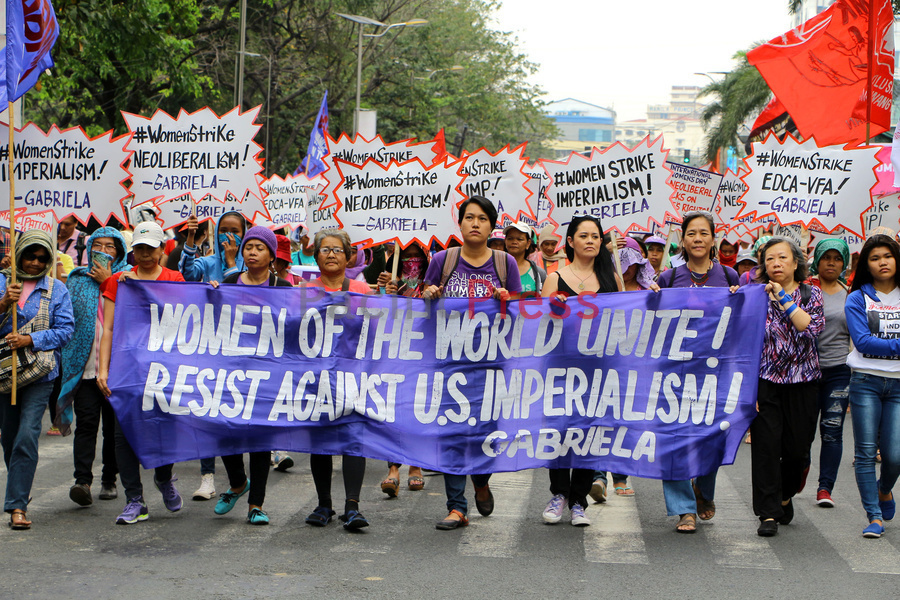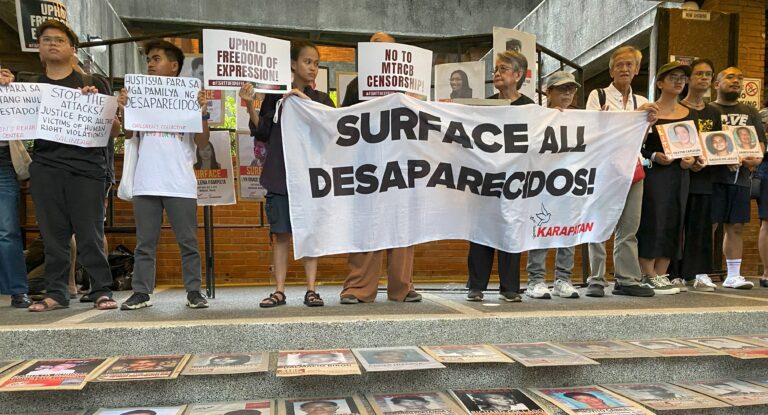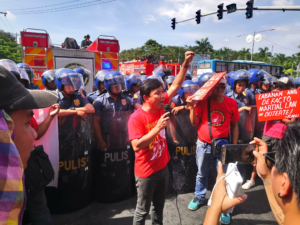
As the Taliban swiftly took over Aghanistan, Nilofar, a displaced resident, feared how difficult life would be under the Islamist military organization’s control.
“No one was allowed to go to the market without a male escort; those who have a male escort are fine. But what happens with those who don’t have a male escort, how can they carry on with their daily lives?” said Nilofar.
When the Taliban first rose to power in the 1990’s, their rule was marred by harsh policies that curtailed women’s rights. For defying the Taliban’s interpretation of Sharia law, women were publicly killed, beaten, and stoned. They forced women to marry and prohibited them from working and studying.
Zabihullah Mujahid, the Taliban spokesperson, promised that the armed group will “uphold women’s rights as long as it’s under the order of Islam.” Under Taliban rule, however, the world has already seen various human rights violations against women and children who continue to be at risk with the Taliban’s resurgence.
Despite their efforts in putting up a “progressive” front and perceived commitment in upholding Women’s rights, press freedom, and amnesty rights for government officials among others, there is no guarantee that the Taliban will keep their promises based on their track record.
History has shown that the imposition of strict Islamic laws on Afghan women heavily constricted their rights and liberties.
When the Taliban first seized power, women were required to wear burkas that covered them from head-to-toe. Women were also forbidden to travel without male accompaniment. The Taliban also banned television, music, and cinema, and frowned upon allowing girls over age 10 to attend school.
“During the last Taliban era, my mother took me out to buy ice-cream. I witnessed my mother getting lashed by the Taliban for revealing her face for a couple of minutes. I can never forget the feeling of helplessness despite being a little child,” cried Zarmina Kakar, a Women’s Rights Activist, during an interview with the Associated Press in Kabul.
Taliban gangs also targeted children as young as 12 with the purpose of enslaving them for sex. Khatera, a female police officer, was ambushed, stabbed, and shot eight times by Taliban fighters. They also once hunted female Afghan care takers in Kunduz just because they had jobs.
“I cannot help but be grateful for my life now. After graduating from college last year and starting to carve out my own career path, I cannot imagine losing it all — going back to a life defined for me by men with guns,” said Pakistani activist Malala Yousafzai.
Such an oppressive environment has sowed fear even on humanitarian agencies such as Doctors Without Borders/Médecins Sans Frontières (MCF) that seek to provide medical assistance to residents. The Taliban stripped women of their right to education, entertainment, and work with their strict interpretation of Sharia law.
Furthermore, they deemed Western films, books, cultural artifacts, and structure as blasphemous. Anyone caught possessing such items were subjected to public executions and floggings. For instance, the destruction of the Buddhas of Bamiyan occurred when Taliban commander Abdual Wahed decided to blow them up.
An unfortunate history is repeating itself for women and children in Afghanistan. However, for the new generation of Afghans who do not have any recollection of the Taliban’s oppression and brutality, the suppression of their rights and liberties have already sparked protests across the war-torn country.
Afghans marched through the streets of Kabul and other cities, waving the Afghan national flag on Afghanistan’s Independence Day. Protesters in Kabul, eastern Afghanistan, and Panjshir Valley were then met with violence.
Unfortunately, attacks on women’s rights are not limited to areas that the Taliban control. A hostile takeover of a government is not necessary to endanger women and children. Even here in the Philippines, women and children also face domestic abuse and unequal treatment.
In Philippine society, the “liberal and neoteric culture” that is assumed to be dominant is, in reality, adhered to only by a minority. Often, a woman’s achievements are still perceived as a sham or a charade, while monstrosities done by men are seen as feats of greatness.
Being tagged as patriarchal, family dynamics in the country are often influenced by machismo attitudes and masculine standards. Regardless of the perception that the Filipino family is also matriarchal, many still perceive the ideal woman as “meek and weak.”
Meanwhile, President Rodrigo Duterte has made no attempt to change this aspect of our culture. In fact, he is the perfect embodiment of the fact that despite progressive cultural and societal trends, machismo and sexism still pervade Philippine society.
The President has blatantly optimized his “militaristic masculinity” as a vehicle to dismantle the rule of law and pursue arbitrary state violence. Part of why Duterte’s bloody and oppressive regime has had stable control of the military is due to the internalization of the “patriarchal structure of thought” by many Filipinos.
“This is not for women. You know, the emotional set-up of a woman and a man is totally different. You will become a fool here. So that is the sad story,” said Duterte at the launch of the Skyway Stage 3 project.
Men, who believe that women are not fit for leadership positions, approach society in the modern form of authoritarianism that looks down on women’s capabilities and existence. In this sense, Duterte and the Taliban are really not so different. They have both harnessed state forces in attacking citizens, thereby trampling on the rights of women and children in the process.
Both regimes disdain and scorn women’s existence and right to live under humane circumstances. They embody misogynistic values and beliefs that continue to prevent humanity from defeating its worst demons and moving forward.
Women and children have long suffered under the cruelty of misogynist and sexist rule; yet multitudes of stories of oppression, violence, and abuse still fall on deaf ears. It’s high time to start taking action to put an end to this heinous system that humiliates and demoralizes women and children.
Condemning violence against women and children, allocating necessary resources for prevention and response to violence, and ensuring that all forms of violence against women and children are prohibited by national laws that are duly implemented in pursuit of equality and safety for all are good ways to start.
Featured image courtesy of Gabriela Ontario.







